Pond Cleaning Company Tring: Maintenance Service
If your pond is looking a little murky, our team of experts can help.
speak with an expert today
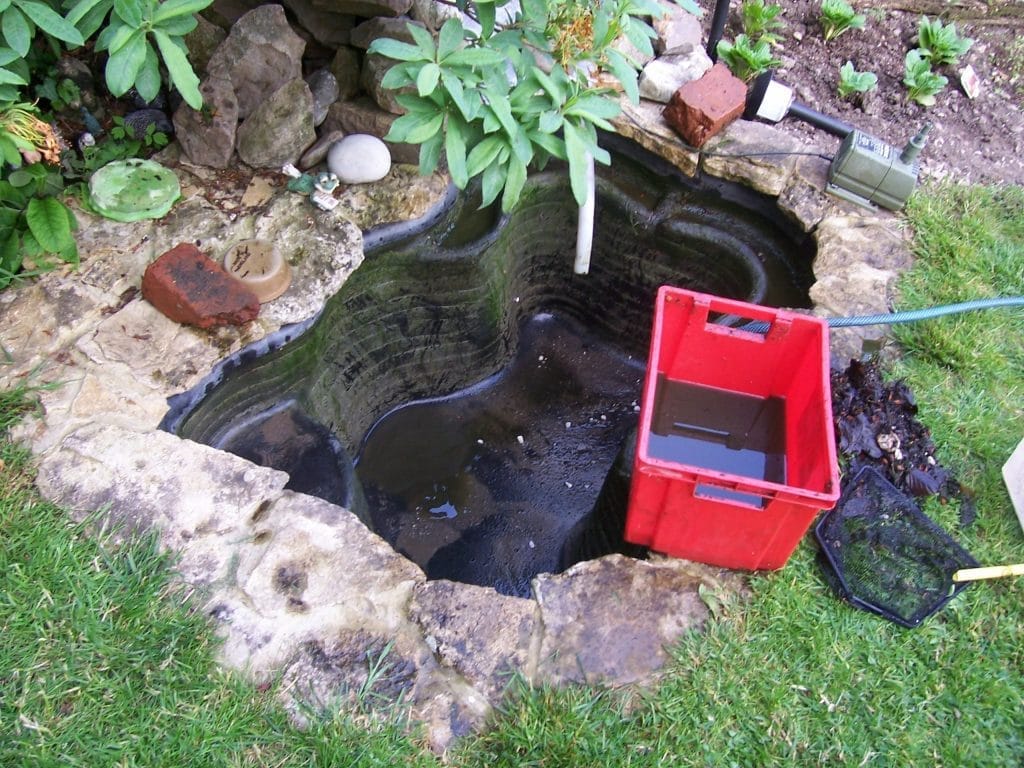
Why pond maintenance is essential
Whether you have a corporate pond, school pond, garden pond or any size, all of them require maintenance every 5-10 years based on their size. Due to the different types of weather Britain has, dirt, debris, algae, and a foul smelling toxic odour can accumulate quickly. This can easily strain your filter, harm your ornamental features and decrease the lifespan of any marine life you have in your pond.
Soon enough, your aquatic oasis can turn into a hazardous environment for your fish, depriving them of light and oxygen. Don’t let these issues disbalance your pond’s ecosystem. With our comprehensive professional pond cleaning services, premium grade pond cleaning equipment and extensive experience, we ensure your pond’s health and longevity will flourish with Anthony and his team.
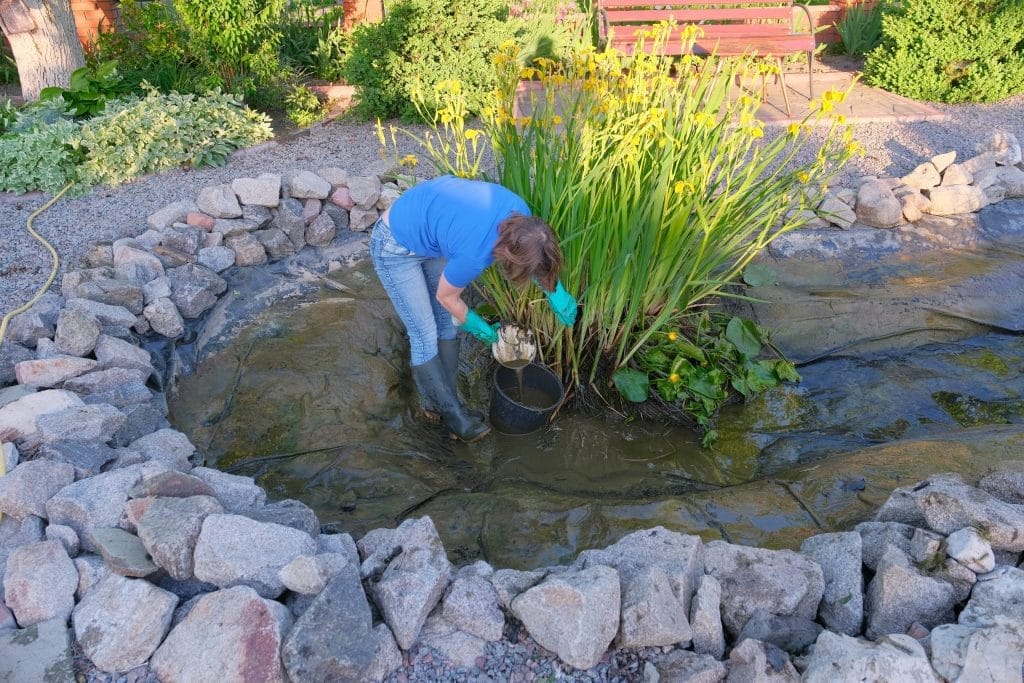

Pond cleaning and maintenance
Bring back the beauty of your pond and elevate its internal environment, with our thorough pond cleaning services.

Our pond cleaning process
Pond maintenance and cleaning is not a one size fits all process, and our pond cleaning company understands that. Ultimately it depends on the size of your pond, structure, inhabitants and location. After an initial inspection, we’ll work with you to provide a customised cleaning process that preserves the health of your pond for as long as possible.
We also offer pond hoovering cleaning services and cater to private and business pond maintenance contracts. With cutting edge pond cleaning equipment, we strive to provide you with a total restoration, often within 24-72 hours.
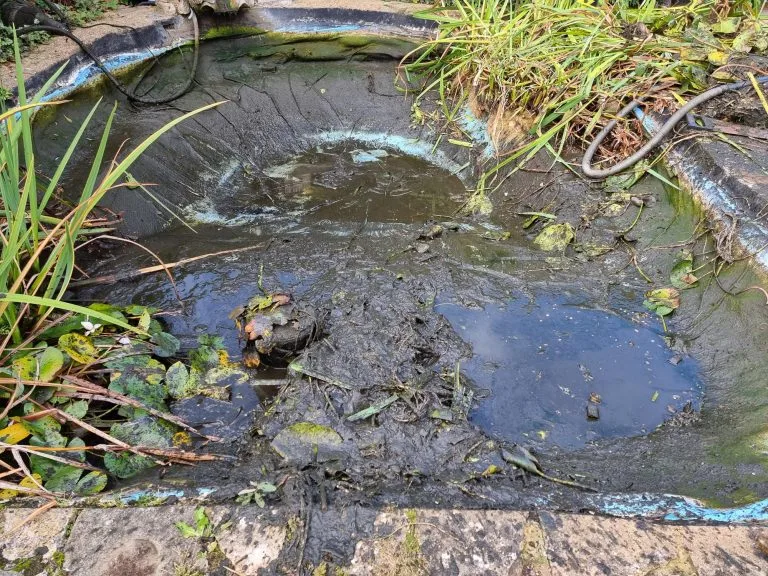


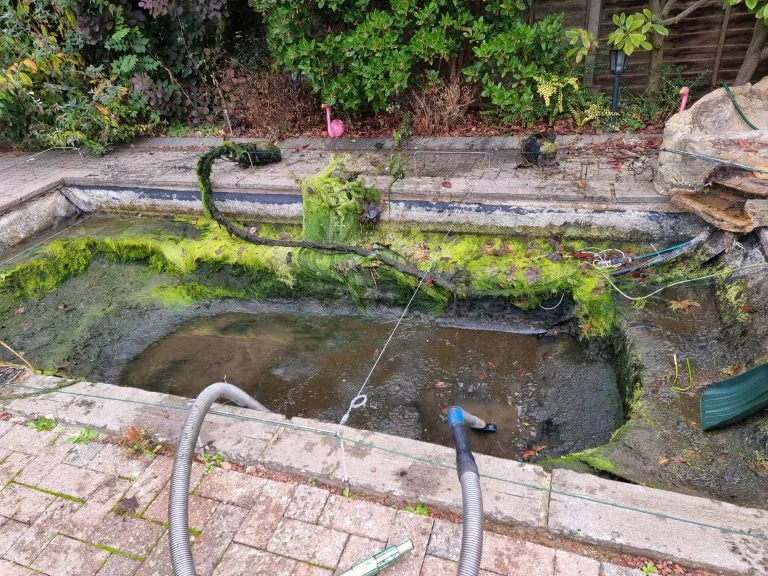

Steps to securing a healthy pond
Generally, our comprehensive clean consists of:
- Draining the pond/water feature fully
- Placing all fish/wildlife into an aerated holding tank
- Cleaning the pond liner using a power washer
- Removing all debris/sludge from the pond by vacuuming out
- Removing excess vegetation if required
- Cleaning the pond filter
- Cleaning the pond pump
- Changing the UV bulb (If needed and requested)
- Cleaning the quartz sleeve (If needed and requested)
- Carrying out any repairs if needed
- Refilling the pond with water from the pond and topped up with tap water.
- Treatments added-dechlorinator and bacteria to start the filter.
- Restarting the system as a back up
- Reinstalling the Fish & Wildlife
Receive a first class clean from us
When it comes to pond cleaning and maintenance, we’re known for our attention to detail. While every pond is unique, we always strive to provide competitive prices that are comfortable for our customers.

Pond Maintenance Tips for Homeowners
Common Pond Problems and Solutions
The Importance of Pond Water Quality
Pond Maintenance Schedules and Plans
Equipment and Supplies for Pond Maintenance
Pond Maintenance for Different Types of Ponds
Top Pond Cleaning Company Tring: Revitalize Your Water Feature Today
Benefits of Regular Pond Cleaning
Our Pond Cleaning Process
Pond Care and Maintenance
Pond Repair and Renovation
Testimonials and Case Studies
Contact Us and Get a Quote
Frequently Asked Questions
Areas We Serve
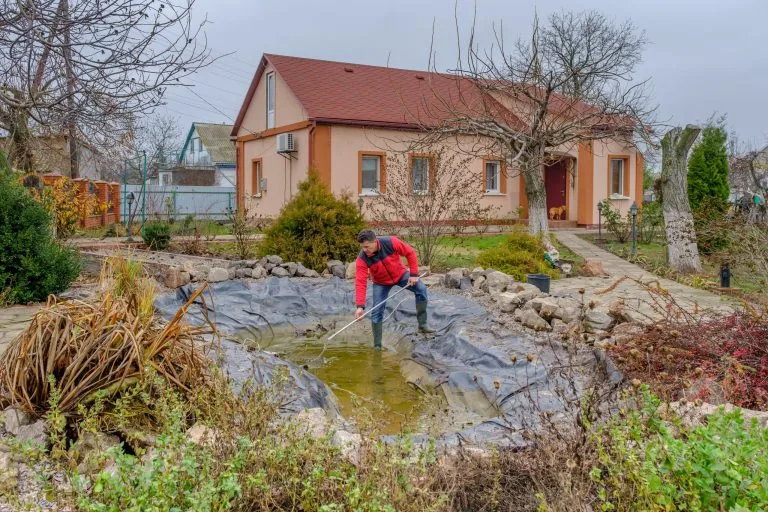


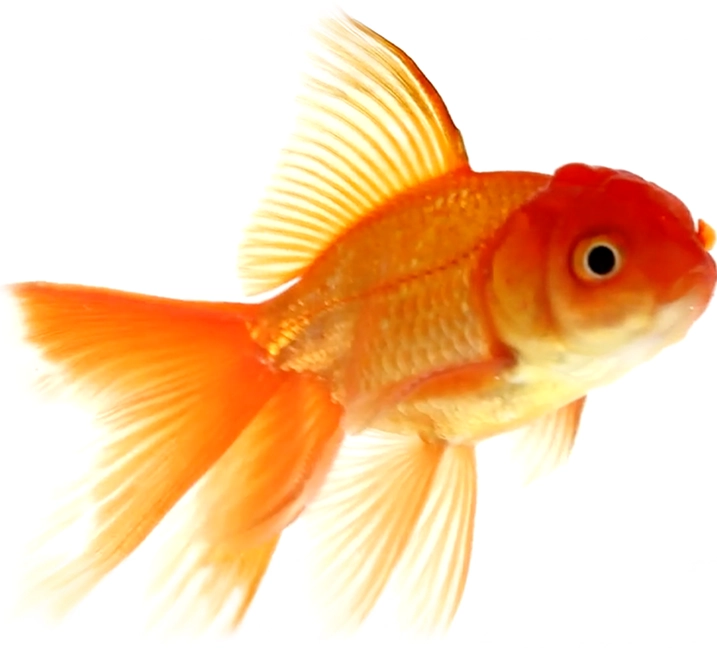
Frequently Asked Questions
MY POND IS OVERGROWN.
MY POND IS LEAKING – WHAT CAN I DO?
WHY IS MY POND WATER GREEN?
Do I need to have my pumps running all the time?
Why Choose Us
Experience With years of experience in pond maintenance and cleaning, our team has the expertise to handle ponds of all sizes and complexities. We are dedicated to delivering high-quality services tailored to meet the unique needs of each customer.
Professionalism Our team consists of trained professionals who are passionate about pond care. We take pride in our work and strive to exceed our customers’ expectations with every service we provide.
Customised Solutions We understand that every pond is different, and we tailor our services to suit the specific requirements of each customer. Whether you have a small backyard pond or a larger water feature, we have the knowledge and resources to keep it in pristine condition.
Environmentally Friendly Practices We are committed to using eco-friendly products and methods in our pond cleaning services. Our goal is to promote sustainability and preserve the natural balance of your pond ecosystem.
Customer Satisfaction Your satisfaction is our top priority. We work closely with our customers to ensure that their pond maintenance needs are met with professionalism and care. We take the time to listen to your concerns and provide personalised recommendations to help you achieve the pond of your dreams.
Ready to schedule a pond cleaning service with us?
Contact Aqua Pond today to learn more about our services and to book an appointment.
Let us help you create a clean, healthy, and vibrant pond that you can enjoy for years. Thank you for considering Aqua Pond for your pond maintenance needs.
What our Customers Say...
